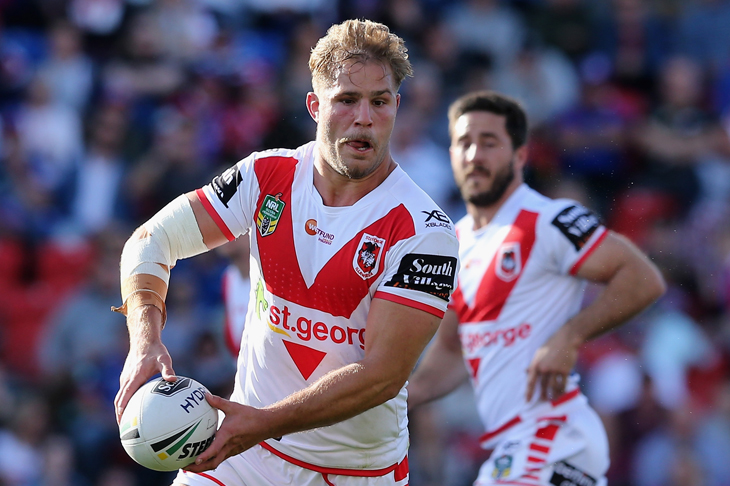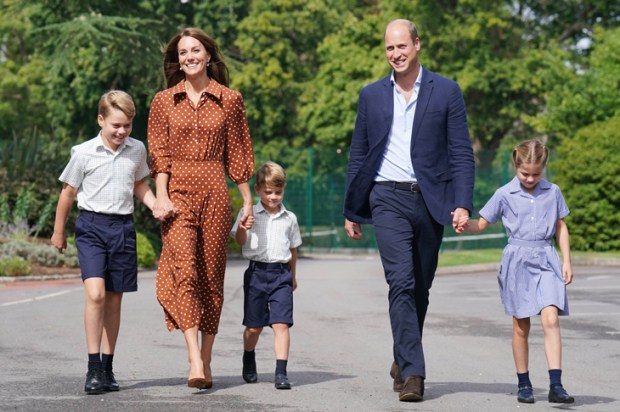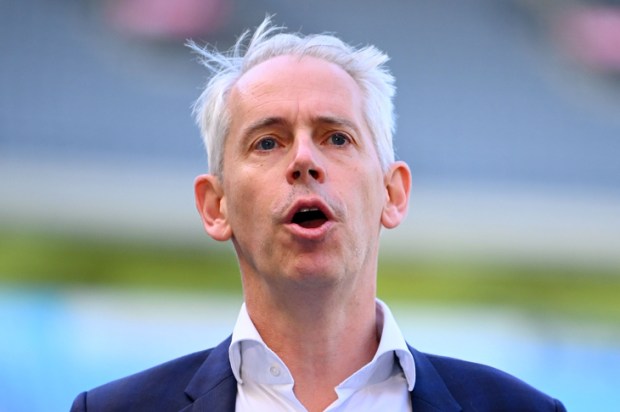There’s a good chance that because of the charge against Jack de Belin, the right to the presumption of innocence will no longer apply to rugby league footballers.
While the elites have targeted white heterosexual men as legitimate objects of such discrimination, many footballers do not fall into one or more of these categories. Most are working class, too.
The NRL is an extraordinarily powerful organisation, more opaque than the Roman Curia. Not only does it restrict footballers’ earnings to well below what the market would reward, it also hands down punishments, including fines of a size usually reserved for ‘mum-and-dad farmers’ for such offences as trying to feed starving cattle with their own mulga.
One such punishment was recently awarded against Payne Haase for an off-field incident concerning some relatives, although he was not directly involved. Apparently his offence was that he would not identify them to a curiously named inquisitorial body, the integrity unit.
Changing the presumption of innocence seems to me a bridge too far. This is fundamental to the rule of law which has long been an important pillar of our society. In fact, it came with Arthur Phillip and is confirmed in the constitutional guarantee of jury trial.
Now it is true that the presumption is not absolute, as demonstrated by our bail laws. But for heaven’s sake, wasn’t de Belin on bail?
He’s passed all the tests which would have kept him in prison. And remember, the bail laws are now tougher than when terrorist Man Haron Monis was let out onto the streets to commit the Martin Place outrage.
So a court has already ruled that de Belin is entitled to be presumed innocent. Who are the NRL to impose a restraint on de Belin’s constitutional right that a court did not think necessary? Who are they to pre-judge the verdict?
And quite apart from his case and without in any way detracting from the seriousness of the charges or suggesting they are not genuine, haven’t those who are calling for de Belin to be suspended realised the enormous injustice which will be done to him in a significant portion of what must necessarily be a short career? Even on full pay he will lose all the experience and the accumulated advantages that flow from playing for the season or seasons which must elapse before this case is completed. If there are appeals this could extend to the rest of his career.
In addition, haven’t those who are calling for this change, some of whom have never been players, realised that a change of rule will inevitably result in a wave, even a tsunami, of confected and concocted allegations, or the threat of them to gain financial advantage or just to punish someone?
This, I would say, is guaranteed. Little wonder that the Rugby League Players Association, so ably led by Ian Prendergast, is up in arms.
Royal Commissions are now seen as the solution for everything, with RC’s (Royal Commissioners not Roman Catholics) even pontificating on matters economic — although as economics Professor Judith Sloan puts it, lawyers make lousy economists.
I would suggest that the NRL and the exercise of its extraordinary powers is especially ripe for a Royal Commission.
Now I have the perfect Royal Commissioner, the formidable Margaret Cunneen QC (actually SC but no one knows what this republican replacement means).
Ms Cunneen was our best known, as well as a very successful, Crown Prosecutor.
She is now practising as a barrister in State Chambers.
Given that since the Royal Commission into the Don Dale youth detention centre, which Malcolm Turnbull created after watching Four Corners, RCs no longer have to recuse themselves for whatever they may have said before their appointment, there should be no barrier to Ms Cunneen’s appointment by my reporting our exchange on the matter.
Ms Cunneen believes that the NRL are duty-bound to support the presumption of innocence, particularly now that they have ‘the recent experience of learning that false allegations have been made against players because they are players.’
By way of example, she points out that the allegations against Brett Stewart were ‘proved to have been fabricated’. She adds that the complaints of domestic violence against Shaun Kenny-Dowall were found to be absolutely groundless. She warns that the proposed reaction to an untested allegation would give ‘enormous power to derail the careers of young men to whom they take a dislike.’
There is no parallel, she insists, with the standing down of allegedly corrupt police officers. This is because of the risk of further offence in policing, if there were an offence committed. As she explains, ‘there is no risk of offending this way on the football field’.
She declares firmly that suspension is ‘an extra-curial punishment’. As such, she says, it ‘cannot be justified’. This could prejudice de Belin’s chances for a fair trial which would be unfair to both sides, especially if this resulted in an appeal.
She scathingly dismisses the argument that the players are ‘role models’ for society as ‘ridiculous’. ‘They should be role models for the playing of their sport only,’ she says. Making them role models for all conduct outside playing makes them ‘vulnerable to constant scrutiny and malicious allegations.’
Ms Cunneen concludes by calling on the NRL to be practical and down-to-earth, recognising that their players are ‘likely to be targets for false allegations’.She warns that this is particularly so since ‘some sections of the media are keen to fuel bad publicity against the traditional working-man sport of rugby league (which the feminists love to hate even though there are now women’s teams which are becoming ever more skilful and entertaining).’
On all this I cannot but concur. Even white heterosexual men have rights.
Got something to add? Join the discussion and comment below.
Get 10 issues for just $10
Subscribe to The Spectator Australia today for the next 10 magazine issues, plus full online access, for just $10.
You might disagree with half of it, but you’ll enjoy reading all of it. Try your first month for free, then just $2 a week for the remainder of your first year.














Comments
Don't miss out
Join the conversation with other Spectator Australia readers. Subscribe to leave a comment.
SUBSCRIBEAlready a subscriber? Log in